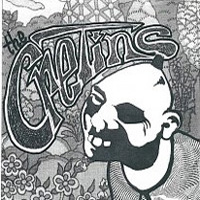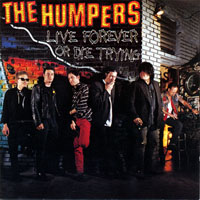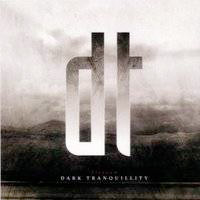 Auntie Christ Super Tsar
Auntie Christ Super Tsar
An “interview” with Marilyn Manson
Controversial rock star Marilyn Manson recently agreed to an exclusive interview with the internationally acclaimed Literature/Music/Fashion Critic, Jean-Paul Bavard. They met over an elegant dinner at a fashionable bistro to discuss such diverse and controversial topics as superstardom, religion, conformity, gender politics and drug abuse. Here is the transcript of their conversation.
An interview transcribed by Daniel Davis
illustration by Ans Purins
Jean-Paul Bavard: As an acclaimed Genius of pre-millennial industrio-goth pop music, you are often cast into the role of spokesmodel for your generation. How do you reconcile this with your public image as a neo-cyber-transgendered icon of ironic commentary on bourgeoisie American values?
Marilyn Manson: Um… well…
Jean-Paul Bavard: Of course, les celebrities have been facing these questions for decades, without solving the contradictions inherent in them. In fact, these very contradictions have often served as the actual inspiration for great works of Art by a diverse array of such Geniuses as Matisse, Warhol, Goldsboro, and even Brahms. What place does your current Disque Compacte occupy in this exemplary pantheon of the Art of the Contradiction?
Marilyn Manson: I’ve been thinking about that sort of thing recently, and I’d have to say that I finally realized that…
Jean-Paul Bavard: Which is not to say, obviously, that your Genius musical oeuvre is anything other than original and unique. Still, there can be no denying that your tres subtle parody of the genre-bending musical vision of such icons as Alice Cooper, David Bowie, and Trent Reznor is a vital satirical statement on the ever-present plasticity and constant artistic cannibalism inherent in our anthropophagic culture. Beginning with your major label debut, The Odor of Children, through your groundbreaking Auntie Christ Super Tsar, and up to and including your latest masterwork, Mechanical Enemas, you have built a uniquely hysterical yet derivative body of work, incorporating such diverse influences as Avant Trance-Core, Zen Bluegrass, the burgeoning Brasilian Tropicalia scene, and Manchester-style Neo Ambient Acid Swing. Yet, as my great friend et colleague Hunteress Thompson once told me, “the difference between peyote and mescaline is a very subtle one, unless you happen to be the guy who’s looking at a room full of gigantic seven-headed lizards.” Clearly, this comment is analogous to your recent musical output, and even your public persona. Of course, many Genius artistes have been greatly influenced by mind-destroying drugs. You are certainly no exception. How have you handled your incroyable success?
Marilyn Manson: Well, it’s been amazing. We attract some of the most insane fans. Just last week, after this show in Dayton…
Jean-Paul Bavard: As you are doubtlessly well aware, the stresses of superstardom have toppled the careers of so many Geniuses of Rock, from Presley to Morrison to Yankovic. At what point do you plan to escape the spotlight, while also reestablishing the flagging momentum of your career, by dying of a controversial and tragic overdose of dangerous drugs?
Marilyn Manson: What?
Jean-Paul Bavard: Of course, we all know that you are no stranger to such controversy. Rumors abound of your wild onstage antics, of your surgically removed rib, your breast implants, your love of golf, your many acts of deviance and depravity, your collection of souvenir ceramic plates…
Marilyn Manson: Well, I’ve been wanting to talk about the rumors – which ones are true, which ones are false. I’d say the wildest one that’s actually true would have to be the…
Jean-Paul Bavard: Ah, wild rumors have always been a part of the milieu of IndustrioAlternaGoth music. They have dogged virtually each artiste that has tasted even a modicum of success in the genre. Still, you face many other challenges. As Nietzsche once wrote, “if a woman possesses manly virtues, one should run away from her; and if she does not possess them, she runs away herself.” Of course, women running away is a frequent problem if you look like Nietzsche did. But I digress. I believe the crux of our debate here is the question of gender politics in the male-dominated musique industry. As one of the most successful women in all of contemporary music, what is your response to this?
Marilyn Manson: As a woman? Me?
Jean-Paul Bavard: Clearly, you are uncomfortable with the media casting you in this role. Perhaps it would be best to cancel your rumored plans to be a part of this summer’s Lilith Fair tour. But surely you agree that this media controversy is a necessary part of your struggle to communicate your message of outrageousness, blasphemy, and consumerism to America’s youth in new and disturbing ways. Your music, publicized antics, and fashion sense have had an incredible influence in shopping malls around le monde. But despite your success, there remains a small, yet large, portion of people under 30 years of age with neither body piercings nor tattoos. What is your plan to inspire these holdout young conformists to spend their discretionary income on your merchandise and products?
Marilyn Manson: Uh, what are you talking about?
Jean-Paul Bavard: A writer in a recent issue of Cahiers du Swine magazine described you as “an amazing contradiction, by alternate turns a howling, testifying Post-Industrial Delta Bluesman; the mesmerizing griot in a remote West African village; and the wacky neighbor on a canceled sitcom.” Yet other critics have disagreed, describing your latest album as “Ziggy Stardust Memories,” and “Five-Inch Nails.” Critical acclaim and financial success are rarely, if ever, found together (except for when they are hiding from the latest Smashing Pumpkins album). It is always the task of l’artiste to decide for him or herself which would be preferable: to view his own work as a success, or to have others view his work this way. This dichotomy is well known to anyone who is familiar with the work of the great Antonio Gramsci, who asked, “Is it better to think without critical awareness, in a disjointed and irregular way? In other words, to participate in a conception of the world imposed mechanically by external environment? Or is it preferable to work out one’s own conception of the world consciously and critically, without the help of hot groupies and big piles of cash?”
Marilyn Manson: Uh, you lost me.
Jean-Paul Bavard: Ah, such reticence! I sense a reluctance to comment, a hesitancy to be committed to a single point of view on this crucial topic. It is just as I theorized. Yet many of your contemporaries, such as the Lo-Fi Trance ‘n’ Bass quintet Devious Times Five, have recorded entire concept albums on this topic. I’m sure you’re familiar with their work, and that of other similar groups, such as Camel Toe, Ass Backwards, and The Righteous Gentiles, all part of the burgeoning Schenectady, New York music scene. Clearly, you share a common musical heritage with these groups.
Marilyn Manson: Schenectady?
Jean-Paul Bavard: You are regarded by many as a lightning rod for controversy; une agent provacateur, even. You have made many comments on religious matters that are shocking and even offensive to many provincial Americans, such as saying that God is dead, that the Beatles are bigger than Jesus, and that you worship Santa.
Marilyn Manson: That’s Satan, not Santa. And I don’t worship him, I was just saying that…
Jean-Paul Bavard: Still, you cannot deny the fact that you are a bold and rebellious hero for saying these controversial things in the face of your country’s strict censorship laws, at great risk to yourself and career, and with nothing to gain, except incessant media coverage, spectacular record sales, and the adoration of millions of teenagers.
Marilyn Manson: Um, okay, if you say so.
Jean-Paul Bavard: Throughout le monde, everyone knows the name and face of the amazing Maryland Hanson. You have literally trillions of fans, and associate with many other supermodels and celebrities, such as Madonna, Iman, Brent Musburger, Cher, and Trent Reznor. Many of your fans, if they had l’opportunitie to speak with you, would have only one question…
Marilyn Manson: What would that be?
Jean-Paul Bavard: What’s Leonardo DeCaprio really like?
Marilyn Manson: I don’t know him, or any of those other people. This is ridiculous. I just wanted to talk about all the rumors, and give my side of the story, but this is just a waste of time. I’m out of here, man.
Jean-Paul Bavard: It seems that the great musical Genius Maryland Hanson has angrily stormed out of this posh cafe in yet another example of his legendary bizarre and controversial behavior. As are most Genius artistes, he is quite unpredictable, and even perhaps temperamental. This incident is yet another example of the kind of extreme and outrageous antics that have made Mme. Hanson the most admired Media Personality in many Junior High Schools across the suburban Etats Unis.



